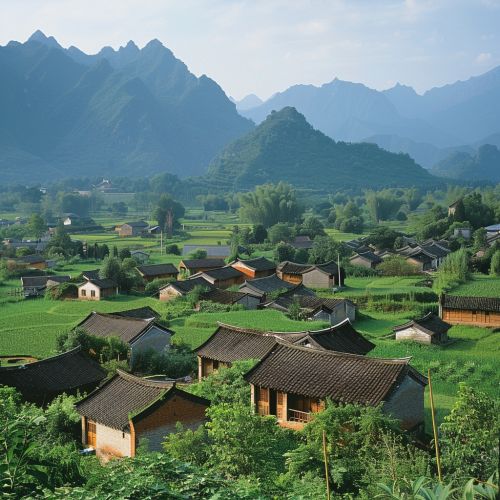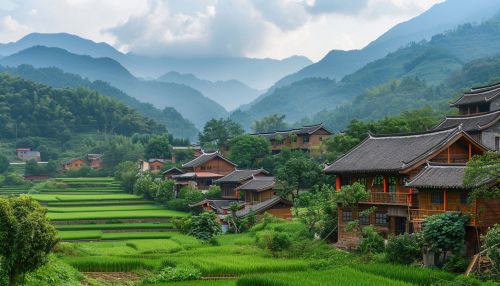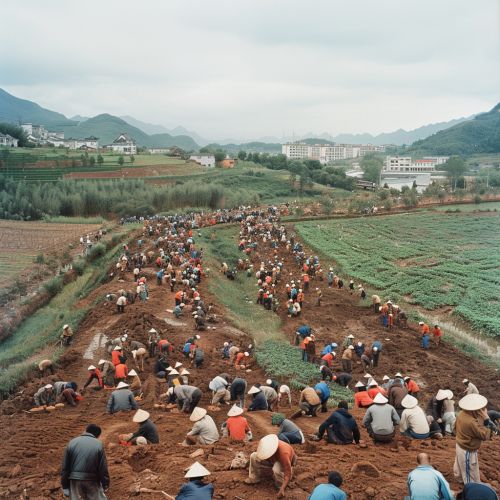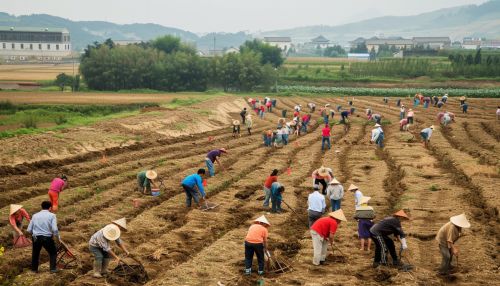Mao Zedong
Early Life
Mao Zedong was born on December 26, 1893, in Shaoshan village, Hunan Province, China. His father, Mao Yichang, was a formerly impoverished peasant who had become one of the wealthiest farmers in Shaoshan. Mao's mother, Wen Qimei, was a devout Buddhist who tried to temper her husband's strict discipline with kindness. Mao had two younger brothers and one younger sister.


Mao's early education was in the Confucian classics. At the age of 13, he was married to a girl of 17, Luo Yigu, who died a few years later. Mao never acknowledged this marriage and it is generally disregarded by his biographers.
Revolutionary Activities
In 1911, Mao began his political life when he joined the revolutionary army in Hunan in response to the outbreak of the Xinhai Revolution. He later moved to Beijing where he worked at Peking University as a library assistant. It was there that he began to read Marxist literature.
In 1921, Mao became a founding member of the Chinese Communist Party (CCP) and set up a branch in Hunan. In 1923, the Kuomintang (KMT), led by Sun Yat-sen, and the CCP formed the First United Front.
Chinese Civil War
With the outbreak of the Chinese Civil War in 1927, Mao led the Autumn Harvest Uprising in Hunan, establishing the Jiangxi Soviet. This marked the beginning of the Red Army, with Mao as one of its leaders. Mao led the Long March, a strategic retreat to Shaanxi Province in the northwest of China, which lasted from 1934 to 1935.
During the Civil War, Mao's strategy of mobilizing peasants for guerrilla warfare proved successful. He developed the theory of "People's War", which emphasized winning over the population and using the countryside to surround and eventually take the cities.
People's Republic of China
In 1949, after the defeat of the KMT, Mao proclaimed the establishment of the People's Republic of China (PRC). He was chairman of the PRC until his death in 1976. During his leadership, Mao initiated the Great Leap Forward and the Cultural Revolution, causing severe social and economic upheaval.


Great Leap Forward
The Great Leap Forward (1958–1962) was an economic and social campaign by the CCP, aimed at rapidly transforming the country from an agrarian economy into a socialist society through rapid industrialization and collectivization. However, it is widely considered to have caused the Great Chinese Famine.
Cultural Revolution
The Cultural Revolution (1966–1976) was a sociopolitical movement that aimed at preserving 'true' Communist ideology by purging remnants of capitalist and traditional elements from Chinese society, and to re-impose Mao's ideology as the dominant ideology within the Party. The Revolution marked Mao's return to a position of power after the failures of the Great Leap Forward.
Death and Legacy
Mao Zedong died on September 9, 1976. His death marked the end of an era in China. His legacy remains controversial and complex. His socio-political programs, such as the Great Leap Forward and the Cultural Revolution, are blamed for causing severe damage to the culture, society, economy, and foreign relations of China, as well as a probable death toll in the tens of millions.
